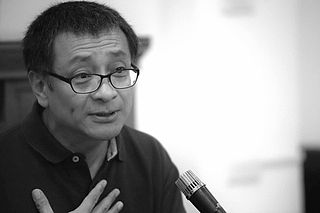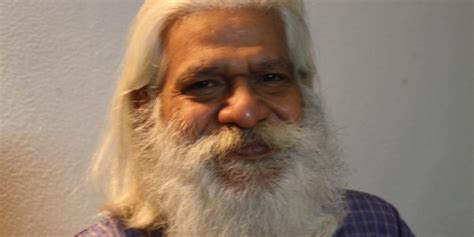A Quote by Stephen Batchelor
So the Buddha is presenting awakening not as a single mystical experience that may come upon us at some meditation, some private moment of transcendence, but rather as a new engagement with life. He is offering us a relationship to the world that is more sensitized to suffering and the causes of suffering, and he gives rise to the possibility of another kind of culture, another kind of civilization.
Related Quotes
There is much suffering in the world - physical, material, mental. The suffering of some can be blamed on the greed of others. The material and physical suffering is suffering from hunger, from homelessness, from all kinds of diseases. But the greatest suffering is being lonely, feeling unloved, having no one. I have come more and more to realize that it is being unwanted that is the worst disease that any human being can ever experience.
Use all your suffering for meditation, and soon you will come to know that the suffering disappears because the energy starts moving inwards. It is not moving to the periphery, to the suffering, you are not feeding your suffering. It looks illogical, but this is the whole conclusion of all the mystics of the world: that you feed your suffering and you enjoy it in a subtle way, you don't want to be well—there must be some investment in it.
Believing there is no God means the suffering I've seen in my family and indeed all the suffering in the world isn't caused by any omniscient, omnipresent, omnipotent force that isn't bothered to help or is just testing us, but rather something we all may be able to help others with in the future. No God means the possibility of less suffering in the future.
There is no inherent awakening power in cultural forms that have become dissociated from the wisdom and practicality that gave birth to them. They turn into illusions themselves and become part of the drama of religious culture. Although they can make us happy temporarily, they can't free us from suffering, so at some point, they become a source of disappointment and discouragement. Eventually, these forms may inspire nothing more than resistance to their authority.
Once we experience and feel this inter-dependence of all living beings,we will cease to hurt, humiliate, exploit and kill another. We will want to free all sentient beings from suffering. This is karuna, compassion, which in turn gives rise to the responsibility to create happiness and its causes for all.
As children, Siddhartha and Jesus both realized that life is filled with suffering. The Buddha became aware at an early age that suffering is pervasive. Jesus must have had the same kind of insight, because they both made every effort to offer a way out. We, too, must learn to live in ways that reduce the world's suffering.
Suffering is universal; how we react to suffering is individual. Suffering can take us one of two ways. It can be a strengthening and purifying experience combined with faith, or it can be a destructive force in our lives if we do not have the faith in the Lord's atoning sacrifice. The purpose of suffering, however, is to build and strengthen us.
Books may not change our suffering, books may not protect us from evil, books may not tell us what is good or what is beautiful, and they will certainly not shield us from the common fate of the grave. But books grant us myriad possibilities: the possibility of change, the possibility of illumination.
The poor, you know, have a way of solving problems...they have a tremendous capacity for suffering. And so when you build a vehicle to get something done, as we've done here in the strike and the boycott, then they continue to suffer - and maybe a little bit more - but the suffering becomes less important because they see a chance of progress; sometimes progress itself. They've been suffering all their live.s It's a question of suffering with some kind of hope now. That's better than suffering with no hope at all.
But we must admit the possibility that continued investigation and experience will bring us ever nearer to that solemn moment, when the first man will rise from earth by means of wings, if only for a few seconds, and mark that historical moment which heralds the inauguration of a new era in our civilization.


































